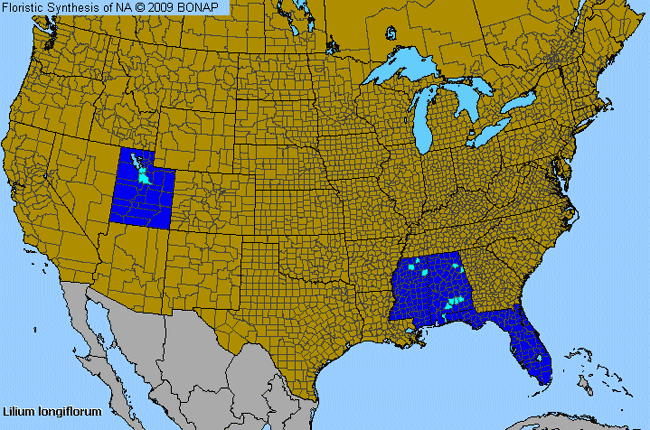Trumpet Lily (Lilium longiflorum)

Trumpet Lily Species Description

These plants are from foreign areas (those that occur outside of North America north of Mexico) that have been released intentionally or unintentionally. Plants that have been disseminated or escaped as a result of human activity, and become established somewhere within the United States, Canada or Greenland.
Allergenicity: No allergy has been reported for Trumpet Lily (Lilium longiflorum) species.
Pollination: Occurs in following seasons depending on latitude and elevation: Summer.
Angiosperm - Flowering Monocot: Plants in this group have one embryonic leave (single cotyledon). This group include the grasses, lilies, orchids and palms.
Forb: A broad-leaved herb other than a grass, especially one growing in a field, prairie, or meadow.
Perennial: Living for many years.
Bulb: a usually subterranean and often globular bud having fleshy leaves emergent at the top and a stem reduced to a flat disk, rooting from the underside, as in the onion and lily.
Herbaceous Stem: Not woody, lacking lignified tissues.
Trumpet Lily Species Usage

Pharmacological: Used in medicine or pharmacological research.
Related Links

More Trumpet Lily (Lilium longiflorum) imagesby Jessie M. Harris from BONAP










